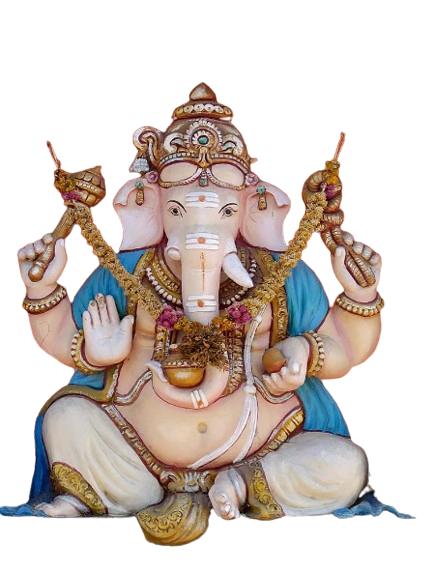Pretty Baby Names
"Enchanting Elegance: Pretty Baby Names for Your Little One"
“Indulge in the sheer charm of our carefully curated collection of pretty baby names! Overflowing with grace, beauty, and timeless appeal, these names are chosen for their enchanting elegance and delightful sound. Explore this compilation featuring names from various origins, each exuding a distinct loveliness and a touch of sophistication. Whether you seek names with floral inspirations, soft and melodic sounds, or simply names that evoke a sense of delicate beauty, this collection celebrates the sheer prettiness and aesthetic allure of names, assisting you in finding a name that reflects sheer elegance and grace for your precious bundle of joy.”
Trending Pretty Baby Names of This Week
Girl Name of the Week
Aarohi

Meaning: Aarohi is derived from Sanskrit and has several interpretations. The most common meaning of Aarohi is “ascend” or “climb.” It represents musical notes’ ascending order in classical Indian music. It can also mean “a tune” or “melody” in a broader sense.
Origin: The name Aarohi originates from Sanskrit, an ancient Indo-Aryan language. In Indian culture, Sanskrit names often have deep meanings rooted in spirituality, nature, or virtues.
- Popularity: Aarohi is a popular and trendy name among Indian parents seeking unique yet meaningful names for their daughters. Its musical connotation and pleasant sound contribute to its popularity.
Boy Name of the Week
Nayan

The name “Nayan” has its roots in several cultures and languages, each with its own significance and meaning. Here are some interpretations of the name “Nayan” from different origins:
Indian Origin (Sanskrit/Hindi):
- In Sanskrit, “Nayan” (नयन) means “eye” or “vision.” It holds significance in Hindu culture, where the eyes are often considered the windows to the soul and are associated with perception, awareness, and insight.
In various cultures, a name is often given to carry specific meanings or aspirations. “Nayan,” with its connotations of vision or eyes, might symbolize perception, insight, clarity, or even the ability to see beyond the obvious.
Pretty Baby boy names inspired by nature
Pretty pop culture baby boy names
Trending Cute Baby names Lists
“Explore the latest cute baby name trends and discover more names that you can consider for your baby.”
Historical person's baby boy names
Pretty Cool baby boy names
Top Baby Names of 2024
Welcome, parents-to-be, to your one-stop shop for the hottest baby names of 2024! We’ve scoured the trend reports, delved into cultural influences, and even peeked at celebrity bundles to curate a list of 200 captivating names brimming with meaning and style.

Trending Cute Baby names Lists
“Explore the latest cute baby name trends and discover more names that you can consider for your baby.”




Pretty Baby boy names inspired by nature
Ash – Meaning “from the ash tree”; Origin: English
Birch – Meaning “a type of tree”; Origin: English
Canyon – Meaning “deep valley”; Origin: English
Dune – Meaning “sand hill”; Origin: English
Elm – Meaning “a type of tree”; Origin: English
Falcon – Meaning “bird of prey”; Origin: English
Glen – Meaning “narrow valley”; Origin: Scottish
Hawk – Meaning “bird of prey”; Origin: English
Indigo – Named after the deep blue color; Origin: Greek
Jay – Meaning “bird”; Origin: Latin
Linden – Meaning “linden tree”; Origin: English
Moss – Meaning “small plant”; Origin: English
Orion – Named after a constellation; Origin: Greek
Peregrine – Meaning “wanderer”; Origin: Latin
Quill – Meaning “writing tool made from a feather”; Origin: English
River – Meaning “flowing water”; Origin: English
Sky – Meaning “heavenly”; Origin: English
Thorn – Meaning “sharp branch”; Origin: English
Valley – Meaning “lowland”; Origin: English
Wilder – Meaning “untamed”; Origin: English
Alder – Meaning “from the alder tree”; Origin: English
Brooks – Meaning “small stream”; Origin: English
Cedar – Meaning “aromatic wood”; Origin: English
Dale – Meaning “valley”; Origin: English
Everest – Named after the tallest mountain; Origin: English
Flint – Meaning “hard rock”; Origin: English
Grove – Meaning “small forest”; Origin: English
Heath – Meaning “heathland dweller”; Origin: English
Ivory – Named after the precious material; Origin: English
Jasper – Named after the semi-precious stone; Origin: Persian
Kai – Meaning “sea”; Origin: Hawaiian
Leaf – Meaning “foliage”; Origin: English
Marsh – Meaning “wetland”; Origin: English
Noble – Meaning “distinguished”; Origin: English
Ocean – Meaning “vast sea”; Origin: English
Pine – Meaning “evergreen tree”; Origin: English
Reed – Meaning “red-haired”; Origin: English
Sage – Meaning “wise and knowing”; Origin: English
Stone – Meaning “rock”; Origin: English
Talon – Meaning “claw of a bird of prey”; Origin: English
Vale – Meaning “valley”; Origin: English
Wade – Meaning “to wade through water”; Origin: English
Xander – Meaning “defender of the people”; Origin: Greek
Yarrow – Named after a flowering plant; Origin: English
Zephyr – Meaning “gentle breeze”; Origin: Greek
Archer – Meaning “bowman”; Origin: English
Birch – Meaning “a type of tree”; Origin: English
Cliff – Meaning “steep rock”; Origin: English
Dale – Meaning “valley”; Origin: English
Forest – Meaning “wooded area”; Origin: English
Glen – Meaning “narrow valley”; Origin: Scottish
Huckleberry – Named after the berry-bearing plant; Origin: American
Ivy – Named after the climbing plant; Origin: English
Juniper – Named after the aromatic evergreen shrub; Origin: Latin
Kai – Meaning “sea”; Origin: Hawaiian
Linden – Meaning “linden tree”; Origin: English
Meadow – Meaning “lush, grassy field”; Origin: English
Noble – Meaning “distinguished”; Origin: English
Oakley – Meaning “oak wood”; Origin: English
Phoenix – Named after the mythical bird; Origin: Greek
Rainier – Named after the mountain range; Origin: French
Sparrow – Meaning “small bird”; Origin: English
Thorn – Meaning “sharp branch”; Origin: English
Urban – Meaning “city dweller”; Origin: Latin
Vine – Meaning “climbing plant”; Origin: English
Pretty Baby Girl names inspired by nature
Aurora – Meaning “dawn”; Origin: Latin
Willow – Named after the tree; Origin: English
Violet – Named after the flower; Origin: English
Ivy – Named after the climbing plant; Origin: English
Daisy – Named after the flower; Origin: English
Luna – Meaning “moon”; Origin: Italian
Skye – Meaning “sky”; Origin: English
Rose – Named after the flower; Origin: English
Hazel – Named after the tree; Origin: English
Brooke – Meaning “small stream”; Origin: English
Juniper – Named after the aromatic shrub; Origin: Latin
Summer – Representing the season; Origin: English
Poppy – Named after the flower; Origin: Latin
Aria – Meaning “air”; Origin: Italian
Sage – Meaning “wise and knowing”; Origin: English
Fern – Named after the green plant; Origin: English
Wren – Named after the bird; Origin: English
Raina – Meaning “queen”; Origin: Latin
Flora – Meaning “flower”; Origin: Latin
Olive – Named after the tree; Origin: English
Amaryllis – Named after the flower; Origin: Greek
Zinnia – Named after the flower; Origin: German/Latin
Marigold – Named after the flower; Origin: English
Nova – Meaning “new”; Origin: Latin
Rowan – Named after the tree; Origin: Gaelic
Jasmine – Named after the fragrant flower; Origin: Persian
Leona – Meaning “lioness”; Origin: Latin
Clementine – Named after the citrus fruit; Origin: Latin
Maple – Named after the tree; Origin: English
Saffron – Named after the spice; Origin: English
Aurora – Meaning “dawn”; Origin: Latin
Willow – Named after the tree; Origin: English
Violet – Named after the flower; Origin: English
Ivy – Named after the climbing plant; Origin: English
Daisy – Named after the flower; Origin: English
Luna – Meaning “moon”; Origin: Italian
Skye – Meaning “sky”; Origin: English
Rose – Named after the flower; Origin: English
Hazel – Named after the tree; Origin: English
Brooke – Meaning “small stream”; Origin: English
Juniper – Named after the aromatic shrub; Origin: Latin
Summer – Representing the season; Origin: English
Poppy – Named after the flower; Origin: Latin
Aria – Meaning “air”; Origin: Italian
Sage – Meaning “wise and knowing”; Origin: English
Fern – Named after the green plant; Origin: English
Wren – Named after the bird; Origin: English
Raina – Meaning “queen”; Origin: Latin
Flora – Meaning “flower”; Origin: Latin
Olive – Named after the tree; Origin: English
Amaryllis – Named after the flower; Origin: Greek
Zinnia – Named after the flower; Origin: German/Latin
Marigold – Named after the flower; Origin: English
Nova – Meaning “new”; Origin: Latin
Rowan – Named after the tree; Origin: Gaelic
Jasmine – Named after the fragrant flower; Origin: Persian
Leona – Meaning “lioness”; Origin: Latin
Clementine – Named after the citrus fruit; Origin: Latin
Maple – Named after the tree; Origin: English
Saffron – Named after the spice; Origin: English
Aurora – Meaning “dawn”; Origin: Latin
Willow – Named after the tree; Origin: English
Violet – Named after the flower; Origin: English
Ivy – Named after the climbing plant; Origin: English
Daisy – Named after the flower; Origin: English
Luna – Meaning “moon”; Origin: Italian
Skye – Meaning “sky”; Origin: English
Rose – Named after the flower; Origin: English
Hazel – Named after the tree; Origin: English
Brooke – Meaning “small stream”; Origin: English
Juniper – Named after the aromatic shrub; Origin: Latin
Summer – Representing the season; Origin: English
Poppy – Named after the flower; Origin: Latin
Aria – Meaning “air”; Origin: Italian
Sage – Meaning “wise and knowing”; Origin: English
Fern – Named after the green plant; Origin: English
Wren – Named after the bird; Origin: English
Raina – Meaning “queen”; Origin: Latin
Flora – Meaning “flower”; Origin: Latin
Olive – Named after the tree; Origin: English
Amaryllis – Named after the flower; Origin: Greek
Zinnia – Named after the flower; Origin: German/Latin
Marigold – Named after the flower; Origin: English
Nova – Meaning “new”; Origin: Latin
Rowan – Named after the tree; Origin: Gaelic
Jasmine – Named after the fragrant flower; Origin: Persian
Leona – Meaning “lioness”; Origin: Latin
Clementine – Named after the citrus fruit; Origin: Latin
Maple – Named after the tree; Origin: English
Saffron – Named after the spice; Origin: English
100 Pretty pop culture baby boy names
- Asher (Hebrew origin) meaning “happy” or “blessed,” inspired by the ash tree.
- Birch (English origin) referring to the birch tree known for its slender branches and white bark.
- Canyon (English origin) derived from the deep, narrow valleys formed by rivers.
- Dune (English origin) inspired by sandy hills or ridges formed by the wind.
- Everest (English origin) taken from the highest mountain in the world, Mount Everest.
- Falcon (English origin) symbolizing speed and grace, inspired by the bird of prey.
- Glen (Scottish origin) meaning “valley,” referencing a secluded and narrow valley.
- Hawk (English origin) inspired by the majestic bird known for its keen eyesight.
- Indigo (Greek origin) referring to the deep blue-purple color inspired by the plant indigofera.
- Jet (English origin) derived from the mineraloid jet, a deep black color often used in jewelry.
- Kai (Hawaiian origin) meaning “sea,” inspired by the ocean’s vastness and beauty.
- Linden (English origin) referring to the linden tree, symbolizing peace and tranquility.
- Moss (English origin) inspired by the soft, green plant that grows in damp environments.
- Nash (English origin) meaning “by the ash tree,” referencing nature and strength.
- Orion (Greek origin) derived from the prominent constellation in the night sky.
- Pine (English origin) inspired by the evergreen tree known for its tall stature.
- Quill (English origin) referencing a bird’s feather, symbolizing freedom and flight.
- River (English origin) inspired by the flowing body of water that nourishes life.
- Sage (English origin) derived from the herb known for its healing properties.
- Talon (English origin) symbolizing sharpness, inspired by a bird’s claw.
- Vale (English origin) meaning “valley,” signifying beauty and serenity.
- Wilder (English origin) denoting someone connected to the wilderness or nature.
- Yarrow (English origin) inspired by the flowering plant with medicinal properties.
- Zephyr (Greek origin) meaning “west wind,” symbolizing a gentle breeze.
- Archer (English origin) inspired by skilled marksmen, referencing precision and accuracy.
- Bay (English origin) referring to a body of water partially enclosed by land.
- Cedar (English origin) inspired by the durable and aromatic tree species.
- Dale (English origin) meaning “valley,” evoking images of peaceful landscapes.
- Elm (English origin) referring to the majestic elm tree often found in parks.
- Fox (English origin) symbolizing cunning and adaptability, inspired by the animal.
- Grove (English origin) denoting a small group of trees or wooded area.
- Heron (English origin) inspired by the graceful and long-legged wading bird.
- Ivory (English origin) referencing the creamy-white color of elephant tusks.
- Juniper (Latin origin) inspired by the fragrant evergreen shrub.
- Kestrel (English origin) referencing a small, hovering falcon.
- Lynx (Greek origin) inspired by the wild cat known for its keen eyesight.
- Maple (English origin) referring to the tree known for its vibrant autumn foliage.
- Noble (English origin) signifying dignity and greatness, inspired by nature’s nobility.
- Oak (English origin) symbolizing strength and endurance, inspired by the mighty tree.
- Peregrine (English origin) referencing the powerful and swift falcon species.
- Quartz (German origin) derived from the mineral known for its crystalline structure.
- Reed (English origin) inspired by the tall, slender grass-like plant growing near water.
- Silas (Latin origin) meaning “of the forest,” inspired by woodland areas.
- Thorn (English origin) referencing the sharp, protective structures on certain plants.
- Ulric (German origin) meaning “wolf ruler,” inspired by the wolf and its connection to nature.
- Vine (English origin) referring to climbing plants or grapevines.
- Willow (English origin) inspired by the graceful and flexible tree species.
- Yew (English origin) referencing the long-lived and poisonous evergreen tree.
- Zion (Hebrew origin) meaning “highest point,” inspired by a biblical mountain.
- Alder (English origin) referring to the tree known for its timber and medicinal properties.
- Basil (Greek origin) inspired by the fragrant herb associated with nature and healing.
- Cypress (English origin) referencing the coniferous tree known for its longevity.
- Dove (English origin) symbolizing peace and purity, inspired by the bird.
- Ember (English origin) meaning “spark,” inspired by glowing fragments of a fire.
- Fisher (English origin) denoting someone who catches fish, inspired by nature.
- Garnet (English origin) referencing the deep red gemstone.
- Huckleberry (English origin) inspired by the small, sweet berries found in nature.
- Iris (Greek origin) referring to the colorful flower associated with rainbows.
- Jasper (Persian origin) derived from the gemstone known for its varied colors.
- Keston (English origin) meaning “from the kestrel’s town,” inspired by the bird.
- Lark (English origin) referencing small, singing birds found in open areas.
- Mica (Latin origin) inspired by the mineral known for its reflective properties.
- Noble (English origin) symbolizing greatness and dignity, inspired by nature’s nobility.
- Oleander (Greek origin) referring to the evergreen shrub with toxic flowers.
- Pascal (French origin) meaning “Easter” or “child of nature.”
- Quail (English origin) inspired by small, ground-dwelling birds.
- Rowan (Gaelic origin) referencing the tree known for its bright berries.
- Sequoia (Cherokee origin) inspired by the giant redwood trees.
- Tiger (English origin) symbolizing strength and courage, inspired by the animal.
- Umber (Latin origin) referencing a natural brown pigment.
- Vernon (English origin) meaning “alder grove,” inspired by the tree.
- Wren (English origin) inspired by small, lively singing birds.
- Yarrow (English origin) referencing the flowering plant with medicinal properties.
- Zephyrus (Greek origin) meaning “west wind,” symbolizing a gentle breeze.
- Aspen (English origin) inspired by the tree known for its distinctive leaves.
- Bayou (Louisianan origin) referencing a slow-moving stream or body of water.
- Caspian (Latin origin) inspired by the Caspian Sea, the largest enclosed inland body of water.
- Dexter (Latin origin) meaning “right-handed,” symbolizing skill and dexterity in nature.
- Finch (English origin) inspired by small songbirds known for their melodious tunes.
- Glenwood (English origin) meaning “from the wooded valley,” evoking natural beauty.
- Huckle (English origin) inspired by the small, sweet berries found in nature.
- Ivory (English origin) referencing the creamy-white color of elephant tusks.
- Jettison (English origin) derived from “jet,” a deep black color often used in jewelry.
- Kale (English origin) inspired by the leafy green vegetable grown in gardens.
- Larch (English origin) referencing the deciduous coniferous tree.
- Merlin (Welsh origin) inspired by the legendary wizard associated with nature.
- North (English origin) symbolizing direction and guidance, inspired by nature.
- Oberon (English origin) inspired by the mythical king of the fairies.
- Peregrine (English origin) referencing the powerful and swift falcon species.
- Quillon (French origin) meaning “oak tree,” symbolizing strength.
- Reef (English origin) inspired by underwater ecosystems and natural formations.
- Spruce (English origin) referencing the coniferous tree with needle-like leaves.
- Talon (English origin) symbolizing sharpness, inspired by a bird’s claw.
- Umberto (Italian origin) meaning “bright” or “shining,” inspired by nature’s beauty.
- Valerian (Latin origin) referencing the flowering plant with medicinal properties.
- Wolfgang (German origin) meaning “wolf path,” inspired by nature and wildlife.
- Yarrow (English origin) referencing the flowering plant with medicinal properties.
- Zion (Hebrew origin) meaning “highest point,” inspired by a biblical mountain.
- Aurelian (Latin origin) meaning “golden” or “gilded,” inspired by nature’s splendor.
- Bodhi (Sanskrit origin) meaning “enlightenment,” inspired by the sacred fig tree.
100 Pretty pop culture baby Girl names
- Aria (Italian origin) meaning “air” or “melody,” inspired by the gentle breeze.
- Blossom (English origin) representing the flowering of nature, symbolizing new beginnings.
- Coral (English origin) inspired by the marine invertebrates forming reefs.
- Daisy (Old English origin) referring to the cheerful flower, symbolizing innocence and purity.
- Eden (Hebrew origin) meaning “delight” or “paradise,” inspired by the biblical garden.
- Flora (Latin origin) referring to the goddess of flowers and blooming plants in Roman mythology.
- Grace (Latin origin) symbolizing elegance and beauty, often associated with divine favor.
- Hazel (English origin) inspired by the hazelnut tree and its golden-brown nuts.
- Ivy (Old English origin) representing the climbing evergreen plant.
- Jasmine (Persian origin) referencing the fragrant flower known for its sweet scent.
- Kaya (Japanese origin) meaning “a resting place,” inspired by tranquility in nature.
- Luna (Latin origin) representing the moon’s beauty and grace.
- Meadow (Old English origin) symbolizing an open grassland or field.
- Nova (Latin origin) meaning “new,” inspired by a star that suddenly becomes very bright.
- Olive (Latin origin) inspired by the olive tree and its fruit, a symbol of peace.
- Primrose (English origin) referencing the early spring flower.
- Raina (Latin origin) meaning “queen” or “counsel,” inspired by regal qualities in nature.
- Skye (English origin) referencing the sky, evoking openness and vastness.
- Talia (Hebrew origin) meaning “gentle rain,” symbolizing nurturing and life-giving qualities.
- Violet (Latin origin) inspired by the purple-blue flower, symbolizing modesty and faithfulness.
- Willow (English origin) referencing the graceful and flexible tree.
- Zara (Arabic origin) meaning “princess” or “flower,” inspired by nature’s beauty.
- Aurora (Latin origin) referencing the dawn, symbolizing new beginnings.
- Briar (English origin) inspired by thorny shrubs and their resilience.
- Cassia (Greek origin) derived from the cinnamon tree, symbolizing exotic beauty.
- Dahlia (Swedish origin) referencing the colorful flower, symbolizing elegance and dignity.
- Elara (Greek origin) inspired by one of Jupiter’s moons, symbolizing celestial beauty.
- Fern (English origin) representing the green, leafy plant found in forests.
- Gemma (Latin origin) meaning “gem” or “jewel,” inspired by nature’s preciousness.
- Haven (English origin) symbolizing a safe place or refuge, akin to nature’s sanctuary.
- Iris (Greek origin) referencing the colorful flower associated with rainbows.
- Juniper (Latin origin) inspired by the fragrant evergreen shrub.
- Kai (Hawaiian origin) meaning “sea,” inspired by the ocean’s vastness and beauty.
- Lilac (Persian origin) referencing the fragrant flowering shrub.
- Mira (Latin origin) meaning “wonderful” or “admirable,” inspired by nature’s marvels.
- Nora (Irish origin) meaning “honor” or “light,” symbolizing purity.
- Opal (Sanskrit origin) referencing the gemstone, symbolizing hope and truth.
- Poppy (Latin origin) inspired by the vibrant red flower.
- Rhea (Greek origin) meaning “flowing stream,” symbolizing life and continuity.
- Sage (English origin) derived from the herb known for its healing properties.
- Tansy (Greek origin) inspired by the yellow-flowered plant, symbolizing immortality.
- Una (Irish origin) meaning “unity” or “one,” inspired by harmony in nature.
- Valencia (Latin origin) referencing strength and vigor, akin to nature’s resilience.
- Wren (English origin) inspired by small, lively singing birds.
- Xanthe (Greek origin) meaning “yellow” or “golden,” inspired by the sun’s warmth.
- Yara (Arabic origin) meaning “small butterfly,” symbolizing transformation.
- Zinnia (German origin) referencing the colorful flower, symbolizing endurance and friendship.
- Acacia (Greek origin) inspired by the flowering tree known for its endurance.
- Brielle (French origin) meaning “God is my strength,” inspired by nature’s resilience.
- Camellia (Latin origin) referencing the flowering plant known for its beauty.
- Delfina (Italian origin) meaning “dolphin,” symbolizing freedom and grace.
- Eloise (French origin) meaning “healthy” or “wide,” inspired by nature’s expansiveness.
- Faye (English origin) meaning “fairy,” symbolizing magic and enchantment in nature.
- Gardenia (English origin) referencing the fragrant white flower.
- Hana (Japanese origin) meaning “flower,” symbolizing natural beauty.
- Ione (Greek origin) meaning “violet flower,” inspired by floral beauty.
- Juno (Latin origin) referencing the goddess of marriage and childbirth in Roman mythology.
- Kenna (Gaelic origin) meaning “born of fire,” symbolizing strength and passion.
- Lavender (English origin) referencing the fragrant purple flower.
- Marigold (English origin) inspired by the golden-yellow flower.
- Nia (Swahili origin) meaning “purpose,” inspired by nature’s intentionality.
- Ondine (French origin) referencing water nymphs, symbolizing fluidity and grace.
- Petra (Greek origin) meaning “rock” or “stone,” inspired by nature’s solidity.
- Quinta (Latin origin) meaning “fifth,” inspired by nature’s cycles and seasons.
- Rosalind (Germanic origin) meaning “beautiful rose,” inspired by floral elegance.
- Seraphina (Hebrew origin) meaning “fiery” or “burning,” symbolizing passion.
- Talia (Hebrew origin) meaning “dew from heaven,” inspired by nature’s nourishment.
- Ursula (Latin origin) meaning “little bear,” symbolizing strength and protection.
- Vesper (Latin origin) meaning “evening star,” inspired by celestial beauty.
- Waverly (English origin) meaning “meadow of quivering aspens,” symbolizing vibrancy.
- Xyla (Greek origin) meaning “of the woods,” inspired by nature’s wilderness.
- Yasmine (Persian origin) referencing the fragrant flower, symbolizing beauty and grace.
- Zara (Arabic origin) meaning “princess” or “flower,” inspired by nature’s beauty.
- Ayla (Hebrew origin) meaning “oak tree,” symbolizing strength and endurance.
- Bryony (Greek origin) referencing the climbing vine, symbolizing resilience.
- Calista (Greek origin) meaning “most beautiful,” inspired by natural beauty.
- Daphne (Greek origin) referencing the laurel tree, symbolizing victory and honor.
- Elara (Greek origin) inspired by one of Jupiter’s moons, symbolizing celestial beauty.
- Freya (Norse origin) referencing the goddess of love, fertility, and beauty in Norse mythology.
- Gaia (Greek origin) meaning “earth,” inspired by the personification of the Earth in Greek mythology.
- Hollis (English origin) meaning “near the holly trees,” symbolizing nature’s presence.
- Isla (Scottish origin) meaning “island,” symbolizing tranquility and solitude.
- Jovie (Latin origin) meaning “joyful,” inspired by the happiness found in nature.
- Kaida (Japanese origin) meaning “little dragon,” symbolizing strength and power.
- Larkspur (English origin) referencing the tall, colorful flower.
- Maren (Latin origin) meaning “of the sea,” symbolizing vastness and depth.
- Nevaeh (English origin) meaning “heaven” spelled backward, inspired by celestial beauty.
- Orla (Irish origin) meaning “golden princess,” symbolizing brightness.
- Paisley (Scottish origin) meaning “church” or “place of worship,” symbolizing serenity.
- Quincy (Latin origin) meaning “fifth son,” inspired by nature’s cycles and seasons.
- Rhiannon (Welsh origin) referencing a mythic figure associated with horses and songbirds.
- Saffron (English origin) referencing the spice known for its yellow color and aroma.
- Tamsin (English origin) meaning “twin,” symbolizing balance and harmony in nature.
- Una (Irish origin) meaning “unity” or “one,” inspired by harmony in nature.
- Vada (German origin) meaning “wise counselor,” symbolizing guidance.
- Wynne (Welsh origin) meaning “fair” or “blessed,” symbolizing nature’s purity.
- Xanthe (Greek origin) meaning “yellow” or “golden,” inspired by the sun’s warmth.
- Yara (Arabic origin) meaning “small butterfly,” symbolizing transformation.
- Zinnia (German origin) referencing the colorful flower, symbolizing endurance and friendship.
- Althea (Greek origin) meaning “healing,” inspired by nature’s therapeutic properties.
Historical person's baby boy names
- Alexander (Greek origin) meaning “defender of the people,” associated with Alexander the Great, a renowned conqueror in ancient history.
- Cyrus (Persian origin) meaning “throne” or “sun,” linked to Cyrus the Great, the founder of the Achaemenid Empire.
- Leonidas (Greek origin) meaning “lion-like,” known for King Leonidas I of Sparta, a warrior king in the Battle of Thermopylae.
- Hannibal (Phoenician origin) meaning “grace of Ba’al,” associated with Hannibal Barca, a Carthaginian military commander.
- Napoleon (Italian origin) meaning “lion of Naples,” referring to Napoleon Bonaparte, a French military leader and emperor.
- Julius (Latin origin) possibly meaning “downy-bearded” or “youthful,” linked to Julius Caesar, a Roman statesman and general.
- Frederick (Germanic origin) meaning “peaceful ruler,” associated with various rulers in European history.
- Socrates (Greek origin) of uncertain meaning, associated with the ancient Greek philosopher renowned for his teachings.
- Genghis (Mongolian origin) meaning “ocean” or “universal ruler,” linked to Genghis Khan, the founder of the Mongol Empire.
- William (Germanic origin) meaning “resolute protector,” associated with several historical figures, including William the Conqueror.
- Aristotle (Greek origin) meaning “best purpose,” associated with the philosopher Aristotle, a pupil of Plato and tutor of Alexander the Great.
- Charlemagne (Germanic origin) meaning “Charles the Great,” associated with the King of the Franks and Emperor of the Holy Roman Empire.
- Hector (Greek origin) possibly meaning “to hold,” known for the Trojan prince Hector in Greek mythology and literature.
- Ashoka (Sanskrit origin) meaning “without sorrow,” associated with Ashoka the Great, an ancient Indian emperor.
- Attila (Gothic origin) meaning “little father,” linked to Attila the Hun, a fearsome ruler of the Hunnic Empire.
- Constantine (Latin origin) meaning “steadfast” or “constant,” associated with Emperor Constantine the Great, known for legalizing Christianity.
- Tutankhamun (Ancient Egyptian origin) meaning “living image of Amun,” associated with the famous Egyptian pharaoh.
- Saladin (Arabic origin) possibly meaning “pious” or “righteous,” known for Salah ad-Din Yusuf ibn Ayyub, a Muslim military leader.
- Leonardo (Italian origin) meaning “brave lion,” associated with the polymath Leonardo da Vinci.
- Cleopatra (Greek origin) meaning “glory of the father,” associated with Cleopatra VII, the last active ruler of the Ptolemaic Kingdom of Egypt.
- Marcus (Latin origin) possibly meaning “dedicated to Mars,” associated with several prominent figures in Roman history, like Marcus Aurelius.
- Alaric (Gothic origin) meaning “ruler of all,” associated with Alaric I, a Visigothic king.
- Gaius (Latin origin) possibly meaning “rejoice,” known for various Roman historical figures, including Gaius Julius Caesar.
- Vladimir (Slavic origin) meaning “ruler of peace,” associated with Vladimir the Great, a ruler of Kievan Rus.
- Ferdinand (Germanic origin) meaning “bold voyager,” associated with various historical figures, including Ferdinand Magellan.
- Hammurabi (Akkadian origin) possibly meaning “the kinsman is a healer,” known for Hammurabi, the Babylonian king and lawgiver.
- Nero (Latin origin) meaning “strong” or “vigorous,” associated with Emperor Nero, known for his controversial rule in ancient Rome.
- Herodotus (Greek origin) meaning “gift of the goddess Hera,” known for Herodotus, the ancient Greek historian.
- Suleiman (Arabic origin) meaning “man of peace,” associated with Suleiman the Magnificent, a powerful Ottoman sultan.
- Pericles (Greek origin) possibly meaning “surrounded by glory,” known for the Athenian statesman Pericles.
- Babur (Turkic origin) meaning “tiger,” associated with Zahir-ud-din Muhammad Babur, the founder of the Mughal Empire.
- Ramses (Egyptian origin) meaning “born of Ra,” associated with several Egyptian pharaohs, including Ramses II.
- Ivan (Slavic origin) possibly meaning “gracious gift of God,” associated with various Russian rulers, including Ivan the Terrible.
- Theodore (Greek origin) meaning “gift of God,” associated with various historical figures, including several Byzantine emperors.
- Augustus (Latin origin) meaning “venerable” or “majestic,” associated with the first Roman emperor, Augustus Caesar.
- Mahatma (Sanskrit origin) meaning “great soul,” associated with Mahatma Gandhi, the leader of the Indian independence movement.
- Baldwin (Germanic origin) meaning “brave friend,” associated with various historical figures, including Baldwin I of Jerusalem.
- Horus (Egyptian origin) meaning “the distant one,” associated with the ancient Egyptian deity and pharaohs.
- Claudius (Latin origin) meaning “lame” or “disabled,” associated with Emperor Claudius, known for his rule in ancient Rome.
- Ephraim (Hebrew origin) possibly meaning “fruitful,” associated with biblical and historical figures.
- Gustav (Swedish origin) meaning “staff of the gods,” associated with various Swedish kings.
- Ibrahim (Arabic origin) meaning “father of nations,” associated with various historical figures, including the biblical Abraham.
- Jawaharlal (Sanskrit origin) meaning “gem of a person,” associated with Jawaharlal Nehru, India’s first Prime Minister.
- Kublai (Mongolian origin) meaning “lake” or “body of water,” associated with Kublai Khan, a Mongol emperor.
- Lysander (Greek origin) meaning “liberator of men,” known for the Spartan general Lysander.
- Maximilian (Latin origin) meaning “greatest,” associated with several European rulers, including Maximilian I of the Holy Roman Empire.
- Narmer (Ancient Egyptian origin) possibly meaning “catfish,” associated with King Narmer, the unifier of ancient Egypt.
- Octavius (Latin origin) meaning “eighth,” associated with the Roman emperor Augustus, originally named Gaius Octavius.
- Plato (Greek origin) possibly meaning “broad” or “wide,” known for the ancient Greek philosopher Plato.
- Ramesses (Egyptian origin) meaning “born of Ra,” associated with several Egyptian pharaohs, including Ramesses III.
- Solomon (Hebrew origin) meaning “peace,” associated with King Solomon of Israel, known for his wisdom.
- Tamerlane (Persian origin) meaning “Timur the Lame,” associated with Timur, the Central Asian conqueror.
- Ulysses (Latinized Greek origin) possibly meaning “to hate” or “to be angry,” known for the hero of Homer’s epic, “The Odyssey.”
- Vikramaditya (Sanskrit origin) meaning “sun of valor,” associated with various Indian kings and legends.
- Wolfgang (Germanic origin) meaning “wolf path,” associated with Wolfgang Amadeus Mozart, the composer.
- Xerxes (Persian origin) meaning unknown, associated with Xerxes I, the Persian king known for his campaigns against Greece.
- Yaroslav (Slavic origin) meaning “fierce” or “strong,” associated with various East Slavic rulers.
- Zoroaster (Avestan origin) possibly meaning “star” or “golden light,” known for the ancient Iranian prophet Zoroaster.
- Arthur (Celtic origin) possibly meaning “bear” or “stone,” associated with King Arthur, a legendary British leader.
- Bayezid (Turkish origin) meaning “victorious,” associated with various Ottoman sultans.
- Clement (Latin origin) meaning “merciful” or “gentle,” associated with various historical figures.
- Darius (Persian origin) possibly meaning “possessor” or “holder,” associated with several Persian kings.
- Erichthonius (Greek origin) meaning “troubles born of the earth,” associated with a mythical Athenian king.
- Francisco (Spanish origin) meaning “Frenchman” or “free man,” associated with various historical figures.
- Gordian (Latin origin) possibly meaning “from Gordium,” associated with Gordian I and II, Roman emperors.
- Helios (Greek origin) meaning “sun,” associated with the ancient Greek sun god Helios.
- Isaac (Hebrew origin) meaning “he will laugh,” associated with the biblical patriarch Isaac.
- Justinian (Latin origin) meaning “just” or “fair,” associated with Byzantine Emperor Justinian I.
- Kamehameha (Hawaiian origin) possibly meaning “the lonely one,” associated with Kamehameha I, the founder of the Kingdom of Hawaii.
- Laozi (Chinese origin) meaning “old master,” associated with the philosopher and founder of Taoism.
- Mehmed (Turkish origin) meaning “praiseworthy,” associated with various Ottoman sultans.
- Nimrod (Hebrew origin) possibly meaning “rebel,” associated with a biblical figure and legendary hunter-king.
- Oleg (Scandinavian origin) possibly meaning “ancestor’s descendant,” associated with a Varangian ruler.
- Ptolemy (Greek origin) possibly meaning “warlike” or “aggressive,” associated with several historical figures.
- Quintus (Latin origin) meaning “fifth,” associated with various Roman historical figures.
- Ragnar (Old Norse origin) possibly meaning “warrior” or “judgment,” associated with legendary Norse figures.
- Septimius (Latin origin) meaning “seventh,” associated with several Roman historical figures.
- Themistocles (Greek origin) possibly meaning “glorious power,” known for the Athenian general and politician.
- Uriah (Hebrew origin) possibly meaning “God is my light,” associated with a biblical figure.
- Valentinian (Latin origin) meaning “strong” or “vigorous,” associated with various Roman emperors.
- Xanthus (Greek origin) possibly meaning “yellow” or “fair hair,” associated with various historical figures.
- Yuri (Slavic origin) possibly meaning “farmer” or “earth-worker,” associated with various East Slavic rulers.
- Zephyrinus (Greek origin) possibly meaning “west wind,” associated with an early Christian pope.
- Abraham (Hebrew origin) meaning “father of many,” associated with the biblical patriarch Abraham.
- Bartholomew (Aramaic origin) meaning “son of Talmai,” associated with one of the twelve apostles.
- Cephas (Aramaic origin) meaning “rock” or “stone,” associated with Simon Peter, an apostle in Christianity.
- Dionysius (Greek origin) possibly meaning “of Dionysos,” associated with various historical figures.
- Eusebius (Greek origin) meaning “pious” or “devout,” associated with early Christian theologians and historians.
- Fabian (Latin origin) meaning “bean grower,” associated with several popes and saints.
- Gregory (Greek origin) meaning “watchful” or “alert,” associated with various popes and saints.
- Hippolytus (Greek origin) possibly meaning “freer of horses,” associated with an ancient Greek figure.
- Ignatius (Latin origin) meaning “fiery” or “ardent,” associated with early Christian saints and theologians.
- Jeremiah (Hebrew origin) meaning “Yahweh exalts,” associated with the biblical prophet Jeremiah.
- Kyrillos (Greek origin) meaning “lordly” or “masterful,” associated with early Christian saints and theologians.
- Lazarus (Hebrew origin) meaning “God has helped,” associated with the biblical figure whom Jesus resurrected.
- Maximinus (Latin origin) meaning “greatest,” associated with various historical figures.
- Nestorius (Greek origin) possibly meaning “victor,” associated with an early Christian theologian.
- Oswald (Old English origin) possibly meaning “godly ruler,” associated with various historical figures.
- Paulinus (Latin origin) meaning “small” or “humble,” associated with various historical figures.
- Quintilian (Latin origin) meaning “fifth-born,” associated with the Roman rhetorician and educator.
Historical person's baby Girl names
- Cleopatra (Greek origin) meaning “glory of the father,” associated with Cleopatra VII, the last active ruler of the Ptolemaic Kingdom of Egypt.
- Joan (Hebrew origin) meaning “God is gracious,” associated with Joan of Arc, a heroine and saint of France.
- Eleanor (Greek origin) meaning “shining light,” associated with various historical figures, including Eleanor of Aquitaine.
- Victoria (Latin origin) meaning “victory,” associated with Queen Victoria, a prominent British monarch.
- Elizabeth (Hebrew origin) meaning “pledged to God,” associated with several historical figures, including Queen Elizabeth I.
- Mary (Hebrew origin) meaning “bitter” or “beloved,” associated with various historical figures, including Mary, Queen of Scots.
- Catherine (Greek origin) meaning “pure” or “clear,” associated with several historical figures, including Catherine the Great of Russia.
- Margaret (Greek origin) meaning “pearl,” associated with various historical figures, including Margaret of Anjou.
- Isabella (Hebrew origin) meaning “pledged to God,” associated with several historical figures, including Isabella I of Castile.
- Anne (Hebrew origin) meaning “grace,” associated with various historical figures, including Anne Boleyn.
- Marie (Hebrew origin) meaning “bitter” or “beloved,” associated with several historical figures, including Marie Antoinette.
- Josephine (Hebrew origin) meaning “God will increase,” associated with Empress Josephine, wife of Napoleon Bonaparte.
- Charlotte (French origin) meaning “free” or “petite,” associated with various historical figures, including Charlotte of Mecklenburg-Strelitz.
- Matilda (Germanic origin) meaning “mighty in battle,” associated with several historical figures, including Empress Matilda.
- Florence (Latin origin) meaning “flourishing” or “prosperous,” associated with Florence Nightingale, a pioneer in nursing.
- Elisabeth (Hebrew origin) meaning “pledged to God,” associated with various historical figures, including Empress Elisabeth of Austria.
- Agnes (Greek origin) meaning “pure” or “holy,” associated with various historical figures, including Agnes of Rome.
- Helen (Greek origin) meaning “torch” or “light,” associated with Helen of Troy from Greek mythology.
- Ada (Germanic origin) meaning “nobility” or “nobility of spirit,” associated with Ada Lovelace, a mathematician and writer.
- Sophia (Greek origin) meaning “wisdom,” associated with various historical figures, including Sophia of Hanover.
- Rosalind (Germanic origin) meaning “gentle horse” or “soft/tender strength,” associated with Rosalind Franklin, a scientist.
- Clara (Latin origin) meaning “clear” or “bright,” associated with Clara Barton, a pioneering nurse and humanitarian.
- Grace (Latin origin) meaning “grace” or “elegance,” associated with various historical figures.
- Emmeline (Germanic origin) meaning “work” or “universal,” associated with Emmeline Pankhurst, a suffragette leader.
- Anastasia (Greek origin) meaning “resurrection” or “reborn,” associated with Grand Duchess Anastasia Nikolaevna of Russia.
- Harriet (Germanic origin) meaning “home ruler,” associated with Harriet Tubman, an abolitionist and political activist.
- Marguerite (French origin) meaning “pearl,” associated with various historical figures, including Marguerite de Navarre.
- Eva (Hebrew origin) meaning “life” or “living one,” associated with Eva Perón, a prominent political figure in Argentina.
- Evelyn (English origin) meaning “desired” or “wished for,” associated with various historical figures.
- Theresa (Greek origin) meaning “harvester” or “summer,” associated with Mother Teresa, a humanitarian and missionary.
- Louise (Germanic origin) meaning “renowned warrior,” associated with various historical figures.
- Adelaide (Germanic origin) meaning “noble” or “of noble kind,” associated with various historical figures.
- Isolde (Germanic origin) meaning “ice ruler” or “ruler of ice,” associated with a legendary figure in medieval tales.
- Aurelia (Latin origin) meaning “golden” or “the golden one,” associated with various historical figures.
- Helena (Greek origin) meaning “bright” or “shining,” associated with Helena, the mother of Emperor Constantine.
- Lucy (Latin origin) meaning “light” or “illumination,” associated with various historical figures.
- Octavia (Latin origin) possibly meaning “eighth” or “eighth-born,” associated with various historical figures.
- Beatrix (Latin origin) meaning “voyager” or “traveler,” associated with various historical figures.
- Cecilia (Latin origin) meaning “blind” or “a way for the blind,” associated with Saint Cecilia.
- Penelope (Greek origin) meaning “weaver” or “duck,” associated with the faithful wife of Odysseus in Greek mythology.
- Genevieve (French origin) meaning “tribe woman” or “woman of the race,” associated with Saint Genevieve.
- Lillian (Latin origin) meaning “lily” or “pure,” associated with various historical figures.
- Diana (Latin origin) meaning “divine” or “heavenly,” associated with Diana, the Roman goddess of the hunt.
- Lydia (Greek origin) meaning “beautiful” or “noble kind,” associated with various historical figures.
- Veronica (Latin origin) meaning “she who brings victory,” associated with Saint Veronica.
- Aurora (Latin origin) meaning “dawn” or “morning light,” associated with various historical figures.
- Winifred (Welsh origin) meaning “blessed peacemaking,” associated with Saint Winifred.
- Eudora (Greek origin) meaning “good gift,” associated with various historical figures.
- Antonia (Latin origin) possibly meaning “priceless” or “praiseworthy,” associated with various historical figures.
- Esther (Persian origin) meaning “star” or “hidden,” associated with the biblical figure Esther.
- Frida (Germanic origin) possibly meaning “peace” or “beautiful,” associated with artist Frida Kahlo.
- Gabrielle (Hebrew origin) meaning “God is my strength,” associated with various historical figures.
- Hermione (Greek origin) meaning “messenger” or “earthly,” associated with a character in Greek mythology.
- Irene (Greek origin) meaning “peace,” associated with various historical figures.
- Jacqueline (French origin) meaning “supplanter” or “may God protect,” associated with various historical figures.
- Katherine (Greek origin) meaning “pure” or “clear,” associated with various historical figures.
- Leonor (Spanish origin) meaning “light” or “torch,” associated with various historical figures.
- Mabel (Latin origin) possibly meaning “lovable” or “dear,” associated with various historical figures.
- Natalie (Latin origin) meaning “born on Christmas day,” associated with various historical figures.
- Olympia (Greek origin) meaning “from Mount Olympus,” associated with various historical figures.
- Paula (Latin origin) meaning “small” or “humble,” associated with various historical figures.
- Rosalind (Germanic origin) meaning “gentle horse” or “soft/tender strength,” associated with various historical figures.
- Serena (Latin origin) meaning “serene” or “tranquil,” associated with various historical figures.
- Theodora (Greek origin) meaning “gift of God,” associated with various historical figures.
- Ursula (Latin origin) meaning “little bear,” associated with various historical figures.
- Vera (Russian origin) meaning “faith” or “truth,” associated with various historical figures.
- Wanda (Slavic origin) possibly meaning “wanderer” or “vandal,” associated with various historical figures.
- Xenia (Greek origin) meaning “hospitable” or “welcoming,” associated with various historical figures.
- Yvette (French origin) meaning “yew” or “archer,” associated with various historical figures.
- Zelda (Germanic origin) possibly meaning “gray fighting maid,” associated with various historical figures.
- Adela (Germanic origin) meaning “noble” or “nobility,” associated with various historical figures.
- Bianca (Italian origin) meaning “white” or “fair,” associated with various historical figures.
- Camilla (Latin origin) meaning “attendant” or “virgin of the temple,” associated with various historical figures.
- Daphne (Greek origin) meaning “laurel” or “bay tree,” associated with a character in Greek mythology.
- Eloise (French origin) meaning “healthy” or “wide,” associated with various historical figures.
- Fiona (Scottish origin) possibly meaning “fair” or “white,” associated with various historical figures.
- Giselle (Germanic origin) meaning “pledge” or “hostage,” associated with various historical figures.
- Hilda (Germanic origin) meaning “battle woman” or “fighter,” associated with various historical figures.
- Iris (Greek origin) meaning “rainbow,” associated with a figure in Greek mythology.
- Jocelyn (Germanic origin) meaning “joyous” or “merry,” associated with various historical figures.
- Keira (Irish origin) possibly meaning “dark-haired” or “little dark one,” associated with various historical figures.
- Lavinia (Latin origin) possibly meaning “purity” or “woman of Rome,” associated with various historical figures.
- Melissa (Greek origin) meaning “honeybee,” associated with various historical figures.
- Nina (Spanish origin) possibly meaning “little girl” or “little dream,” associated with various historical figures.
- Odette (French origin) meaning “wealth” or “fortune,” associated with various historical figures.
- Paloma (Spanish origin) meaning “dove” or “peaceful,” associated with various historical figures.
- Quintina (Latin origin) meaning “fifth” or “fifth-born,” associated with various historical figures.
- Rhea (Greek origin) meaning “flowing stream” or “mother of gods,” associated with various historical figures.
- Selena (Greek origin) possibly meaning “moon” or “goddess of the moon,” associated with various historical figures.
- Tatiana (Latin origin) possibly meaning “father” or “founder,” associated with various historical figures.
- Ulrika (Scandinavian origin) meaning “power of the wolf,” associated with various historical figures.
- Valentina (Latin origin) meaning “strong” or “vigorous,” associated with various historical figures.
- Winona (Native American origin) meaning “first-born daughter,” associated with various historical figures.
- Xanthe (Greek origin) possibly meaning “yellow” or “golden,” associated with various historical figures.
- Yolanda (Greek origin) meaning “violet” or “violet flower,” associated with various historical figures.
Pretty Cool baby boy names
- Asher (Hebrew origin) meaning “fortunate” or “blessed.”
- Caspian (Latin origin) referencing the Caspian Sea.
- Ezra (Hebrew origin) meaning “help” or “helper.”
- Finn (Irish origin) meaning “fair” or “white.”
- Jasper (Persian origin) meaning “treasurer” or “bringer of treasure.”
- Kai (Hawaiian origin) meaning “sea” or “ocean.”
- Levi (Hebrew origin) meaning “joined” or “attached.”
- Milo (Germanic origin) meaning “soldier” or “merciful.”
- Orion (Greek origin) referencing a constellation in the night sky.
- Sebastian (Greek origin) meaning “venerable” or “revered.”
- Xander (Greek origin) meaning “defender of the people.”
- Zane (Hebrew origin) meaning “God is gracious.”
- Arlo (Old English origin) meaning “fortified hill.”
- Bodhi (Sanskrit origin) meaning “enlightenment” or “awakening.”
- Cruz (Spanish origin) meaning “cross” or “crown.”
- Dante (Italian origin) referencing the poet Dante Alighieri.
- Elio (Italian origin) meaning “sun.”
- Flynn (Irish origin) meaning “son of a red-haired man.”
- Griffin (Welsh origin) meaning “strong lord” or “mythical creature.”
- Hugo (Germanic origin) meaning “mind” or “intellect.”
- Ivan (Slavic origin) meaning “God is gracious.”
- Jaxon (English origin) meaning “son of Jack.”
- Kian (Irish origin) meaning “ancient” or “enduring.”
- Luca (Italian origin) meaning “bringer of light.”
- Mateo (Spanish origin) meaning “gift of God.”
- Nico (Greek origin) meaning “victory of the people.”
- Oscar (Irish origin) meaning “God spear” or “deer-lover.”
- Phoenix (Greek origin) referencing the mythical bird.
- Quentin (Latin origin) meaning “fifth.”
- Ryker (Danish origin) meaning “strength” or “superior.”
- Silas (Latin origin) meaning “wood” or “forest.”
- Theo (Greek origin) meaning “gift of God.”
- Uriah (Hebrew origin) meaning “God is my light.”
- Vaughn (Welsh origin) meaning “small” or “junior.”
- Wilder (English origin) meaning “untamed” or “wild.”
- Xavier (Arabic origin) meaning “bright” or “splendid.”
- Yael (Hebrew origin) meaning “mountain goat.”
- Zephyr (Greek origin) meaning “west wind.”
- Atlas (Greek origin) referencing the Titan of Greek mythology.
- Beckett (English origin) meaning “bee cottage.”
- Cairo (Arabic origin) referencing the capital of Egypt.
- Dashiell (French origin) meaning “page boy” or “messenger.”
- Elias (Greek origin) meaning “Yahweh is God.”
- Felix (Latin origin) meaning “happy” or “fortunate.”
- Gideon (Hebrew origin) meaning “mighty warrior.”
- Hendrix (Germanic origin) meaning “son of Henry.”
- Isaiah (Hebrew origin) meaning “Yahweh is salvation.”
- Jacoby (Hebrew origin) meaning “supplanter” or “follower.”
- Kellan (Gaelic origin) meaning “slender” or “powerful.”
- Lachlan (Scottish origin) meaning “from the fjord-land.”
- Maverick (American origin) meaning “independent” or “non-conformist.”
- Nash (English origin) meaning “by the ash tree.”
- Orson (Latin origin) meaning “bear cub.”
- Paxton (Latin origin) meaning “peace town.”
- Quincy (Latin origin) meaning “estate of the fifth son.”
- Rhys (Welsh origin) meaning “enthusiasm” or “passion.”
- Soren (Danish origin) meaning “stern” or “severe.”
- Tate (English origin) meaning “pleasant” or “cheerful.”
- Ulysses (Latinized Greek origin) possibly meaning “to hate” or “to be angry.”
- Valor (English origin) meaning “courage” or “bravery.”
- Wells (English origin) referencing a spring or well.
- Xenon (Greek origin) referencing the chemical element.
- Yuri (Russian origin) possibly meaning “farmer” or “earth-worker.”
- Zaiden (Arabic origin) meaning “growth” or “increase.”
- Alistair (Scottish origin) meaning “defender of mankind.”
- Bennett (Latin origin) meaning “blessed” or “favored.”
- Cassius (Latin origin) meaning “hollow” or “empty.”
- Daxton (English origin) meaning “warrior’s town.”
- Ephraim (Hebrew origin) possibly meaning “fruitful.”
- Fox (English origin) referencing the animal.
- Gage (English origin) meaning “pledge” or “oath.”
- Hawk (English origin) referencing the bird of prey.
- Ignatius (Latin origin) meaning “fiery” or “ardent.”
- Jett (English origin) meaning “black gemstone.”
- Kairos (Greek origin) meaning “opportune moment.”
- Lennon (Irish origin) meaning “small cloak” or “caped.”
- Mars (Roman origin) referencing the god of war in Roman mythology.
- Nolan (Irish origin) meaning “noble” or “champion.”
- Orin (Irish origin) possibly meaning “pale” or “fair-haired.”
- Pierce (English origin) meaning “son of Piers.”
- Quest (English origin) meaning “search” or “journey.”
- Rogue (English origin) meaning “dishonest” or “unprincipled person.”
- Sage (English origin) meaning “wise” or “prophet.”
- Talon (English origin) referencing the claw of a bird of prey.
- Upton (English origin) meaning “upper town.”
- Viggo (Scandinavian origin) meaning “war” or “battle.”
- Wylie (Scottish origin) meaning “crafty” or “sly.”
- Xerxes (Persian origin) meaning unknown, associated with a Persian king.
- Yardley (English origin) meaning “fenced meadow.”
- Zephyrus (Greek origin) meaning “west wind” or “gentle breeze.”
- Arrow (English origin) referencing the projectile used in archery.
- Blaze (English origin) meaning “flame” or “fire.”
- Canyon (English origin) referencing a deep valley with steep sides.
- Draven (English origin) meaning “hunter.”
- Everest (English origin) referencing the highest mountain peak.
- Falcon (English origin) referencing the bird of prey.
- Gryphon (Greek origin) referencing a mythical creature.
- Heron (English origin) referencing a long-legged freshwater bird.
- Jupiter (Roman origin) referencing the chief deity in Roman mythology.
- Kaiser (German origin) meaning “emperor” or “king.”
Pretty Cool baby Girl names
- Aria (Italian origin) meaning “melody” or “air.”
- Zara (Arabic origin) meaning “princess” or “flower.”
- Nova (Latin origin) meaning “new” or “star.”
- Luna (Latin origin) meaning “moon.”
- Serenity (English origin) meaning “peaceful” or “calm.”
- Aurora (Latin origin) meaning “dawn” or “sunrise.”
- Esme (French origin) meaning “esteemed” or “beloved.”
- Ivy (English origin) referencing the climbing evergreen plant.
- Daphne (Greek origin) meaning “laurel” or “victory.”
- Elara (Greek origin) inspired by one of Jupiter’s moons.
- Isla (Scottish origin) meaning “island” or “peaceful.”
- Zephyra (Greek origin) meaning “west wind” or “gentle breeze.”
- Athena (Greek origin) referencing the goddess of wisdom.
- Lyra (Greek origin) meaning “lyre” or “music.”
- Kalista (Greek origin) meaning “most beautiful” or “superior.”
- Astrid (Scandinavian origin) meaning “divine strength.”
- Indira (Sanskrit origin) meaning “beauty” or “splendid.”
- Saskia (Slavic origin) meaning “protector of mankind.”
- Vivienne (French origin) meaning “alive” or “lively.”
- Clementine (Latin origin) meaning “merciful” or “gentle.”
- Zinnia (Latin origin) referencing the colorful flower.
- Fiona (Gaelic origin) meaning “fair” or “white.”
- Evangeline (Greek origin) meaning “bearer of good news.”
- Maeve (Irish origin) meaning “intoxicating” or “she who intoxicates.”
- Ophelia (Greek origin) meaning “help” or “aid.”
- Seraphina (Hebrew origin) meaning “fiery” or “burning.”
- Valentina (Latin origin) meaning “strength” or “health.”
- Octavia (Latin origin) meaning “eighth” or “born eighth.”
- Xanthe (Greek origin) meaning “yellow” or “golden.”
- Zara (Arabic origin) meaning “princess” or “flower.”
- Amara (Latin origin) meaning “eternal” or “immortal.”
- Calista (Greek origin) meaning “most beautiful” or “beautiful one.”
- Eloise (French origin) meaning “healthy” or “wide.”
- Freya (Norse origin) referencing the goddess of love and fertility.
- Genevieve (French origin) meaning “tribe woman” or “white wave.”
- Harlow (English origin) meaning “army hill.”
- Iris (Greek origin) referencing the colorful flower associated with rainbows.
- Juno (Latin origin) referencing the goddess of marriage and childbirth in Roman mythology.
- Kiera (Irish origin) meaning “little dark one.”
- Lilith (Babylonian origin) meaning “night monster” or “storm goddess.”
- Mabel (Latin origin) meaning “lovable” or “dear.”
- Nola (Irish origin) meaning “fair shoulder.”
- Odette (French origin) meaning “wealth” or “prosperity.”
- Persephone (Greek origin) meaning “bringer of death” or “destroyer.”
- Quinn (Irish origin) meaning “descendant of Conn” or “counsel.”
- Rhiannon (Welsh origin) referencing a mythic figure associated with horses and songbirds.
- Sage (English origin) derived from the herb known for its healing properties.
- Thalia (Greek origin) meaning “blooming” or “to flourish.”
- Uma (Sanskrit origin) meaning “mother” or “light.”
- Veda (Sanskrit origin) meaning “knowledge” or “sacred texts.”
- Willow (English origin) referencing the graceful and flexible tree.
- Xena (Greek origin) meaning “hospitable” or “friendly.”
- Yara (Arabic origin) meaning “small butterfly,” symbolizing transformation.
- Zola (Italian origin) meaning “earth” or “ball of earth.”
- Aisling (Irish origin) meaning “dream” or “vision.”
- Briar (English origin) inspired by thorny shrubs and their resilience.
- Cleo (Greek origin) meaning “pride” or “glory.”
- Delta (Greek origin) meaning “fourth letter of the Greek alphabet” or “triangle.”
- Echo (Greek origin) referencing a nymph in Greek mythology.
- Fleur (French origin) meaning “flower.”
- Giselle (Germanic origin) meaning “pledge” or “hostage.”
- Haven (English origin) symbolizing a safe place or refuge.
- Ione (Greek origin) meaning “violet flower,” inspired by floral beauty.
- Jetta (German origin) meaning “black gemstone” or “stone of jet.”
- Kaiya (Japanese origin) meaning “forgiveness” or “sea.”
- Lark (English origin) inspired by small songbirds known for their melodious tunes.
- Mira (Latin origin) meaning “wonderful” or “admirable,” inspired by nature’s marvels.
- Nyx (Greek origin) meaning “night.”
- Olympia (Greek origin) meaning “from Mount Olympus” or “heavenly.”
- Piper (English origin) meaning “pipe player” or “flute player.”
- Quincy (Latin origin) meaning “estate of the fifth son.”
- Raven (English origin) referencing the black bird associated with mysticism.
- Salem (Hebrew origin) meaning “peace.”
- Tamsin (English origin) meaning “twin,” symbolizing balance and harmony in nature.
- Una (Irish origin) meaning “unity” or “one,” inspired by harmony in nature.
- Vesper (Latin origin) meaning “evening star,” inspired by celestial beauty.
- Wren (English origin) inspired by small, lively singing birds.
- Xara (Greek origin) meaning “princess” or “crown.”
- Yasmine (Persian origin) referencing the fragrant flower, symbolizing beauty and grace.
- Zelda (Germanic origin) meaning “gray fighting maid.”
- Amara (Latin origin) meaning “eternal” or “immortal.”
- Brielle (French origin) meaning “God is my strength,” inspired by nature’s resilience.
- Calliope (Greek origin) meaning “beautiful voice” or “muse of epic poetry.”
- Darcy (French origin) meaning “from Arcy.”
- Elara (Greek origin) inspired by one of Jupiter’s moons, symbolizing celestial beauty.
- Fey (English origin) meaning “fairy” or “magical.”
- Galatea (Greek origin) meaning “she who is milk-white” or “she who is ivory.”
- Harper (English origin) meaning “harp player.”
- Inara (Arabic origin) meaning “ray of light” or “shining.”
- Jorja (English origin) meaning “farmer” or “earth-worker.”
- Kaida (Japanese origin) meaning “little dragon,” symbolizing strength and power.
- Lilou (French origin) meaning “lily.”
- Meadow (Old English origin) symbolizing an open grassland or field.
- Nola (Irish origin) meaning “fair shoulder.”
- Oriana (Latin origin) meaning “gold” or “golden.”
- Paisley (Scottish origin) meaning “church” or “place of worship,” symbolizing serenity.
- Quinn (Irish origin) meaning “wise” or “intelligent.”
- Raine (English origin) meaning “counsel” or “advice.”
- Sailor (English origin) meaning “boatman” or “mariner.”
- Talia (Hebrew origin) meaning “dew from heaven,” inspired by nature’s nourishment.
Most Popular Favorites Baby Names
Testimonial
My Client Saying



Contact Me
Get In Touch
d2023logic@gmail.com
Address
New Digha, Purba Medinipur
721463























